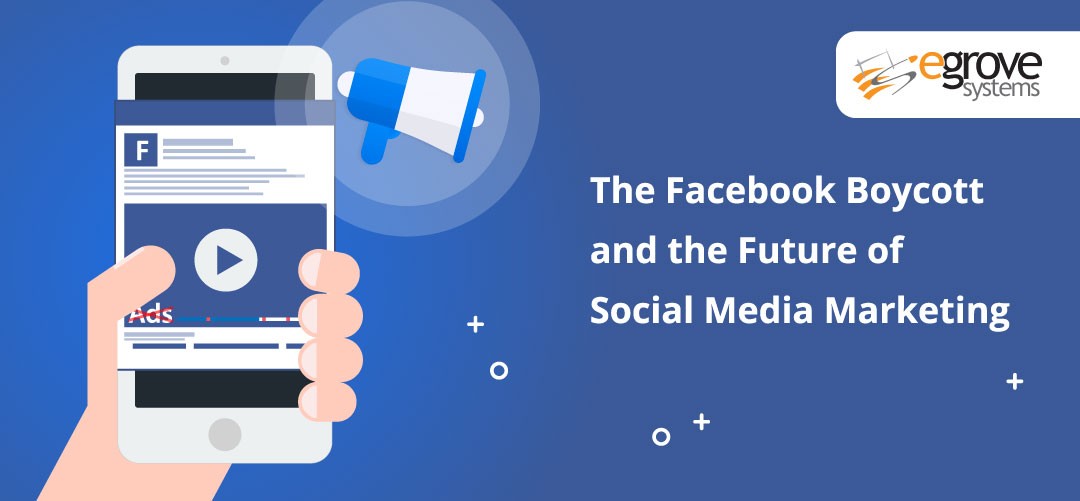In July, over 1,100 companies participated in a boycott of Facebook with the goal of pressuring the largest social media platform to reduce the spread of hate speech and misinformation. The effect has been felt, prompting responses from Facebook while some advertisers intend to continue their efforts. While the economic downturn makes it difficult to assess the true effectiveness of the boycott, there are many important takeaways that advertisers can learn about the future of social media marketing.
Boycott’s Effects Fading, but an Impact Was Made
The number of advertisers that pulled paid ads from Facebook in July surprised many. A survey from Digiday found that 56% of media buyers did so. It’s expected that many will resume their normal spending plans, but now a foundation of support exists to continue to push for changes.
While Facebook did not accept the need for the changes sought by advertisers and civil rights groups, they made clear that they have made progress in quickly removing abusive content in order to reduce the negative association between the social media platform and such content. A recent Facebook blog post shared data on its control of content removal. With both automated and manual reviews, 90% of hate speech is taken down before being reported, 24% more than a little over two years ago.
Advertisers Seek More Control
While companies and their ad agencies supported the civil rights groups behind the boycott, their primary concern is to avoid placement of ads ‘adjacent’ to the content they don’t want to be associated with.
Advertisers have pushed for more control of where their ads appear on Facebook since they are unable to predict where their marketing will appear on a user-driven platform. Even if hate speech is removed quickly, advertisers know that ‘questionable’ offensive or adult content will remain, and they ask for greater ability to opt-out of ad placement of which they don’t approve.
Both in the past and alongside the recent controversy, Facebook has implemented brand safety controls designed for advertisers, letting them have more control over where their ads appear on Facebook, Instagram, and Messenger apps.
Advertisers are able to customize many aspects of their Facebook ads. They can opt-out of live streams which may be more unpredictable in their content. Content allow lists are available for advertisers using the partner services Integral Ad Science, OpenSlate and Zefr so they can review what videos are tied to ads, and publisher allows lists let advertisers choose which third-party publisher apps they run ads on. Advertisers can access delivery reports that give impression data at the publisher and content level, so they can get a better idea of how their content is presented and received.
Read also :- Facebook to Soon Launch Email Marketing for Business Pages
Some Advertisers See Opportunities, Others Turning Elsewhere
It’s important to realize that the top 100 Facebook advertisers made up just 16% of revenue in the second quarter, and the platform primarily serves small businesses, with 9 million advertisers on its platform. Smaller companies utilizing direct response advertising on Facebook were less likely to boycott, and they may see an advantage with less competition and lower ad rates if larger companies are less willing to make use of Facebook ads.
Other companies are concluding that they are not willing to do business with Facebook in the near future, and are turning to social media companies such as Twitter, Pinterest, and Snap and other digital marketing solutions to reach targeted customers and have ads appear in the contexts they prefer.
Potential for Outside Review of Social Media
One of the calls of the boycott movement by both anti-hate groups and advertisers was for more outside monitors to be involved in the review of social media content rather than trusting Facebook’s judgment.
Facebook CEO Mark Zuckerberg spoke in February about allowing external auditing of content, and now is working toward a deal with the Media Rating Council to audit Facebook and Instagram to make it more friendly to advertisers.
With the goal of keeping advertising away from a dozen different categories of negative content, this approach may assure advertisers that their money is not supporting material which they don’t want to be associated with.
While the boycott’s direct effect was limited and Facebook is resistant to outsider demands, it signals that there is an overall agreement that stronger solutions are needed to make advertisers comfortable placing their brands on social media.
Both strong enforcement of content policies and flexible tools for controlling ad placement is necessary to make social media appealing to advertisers.


